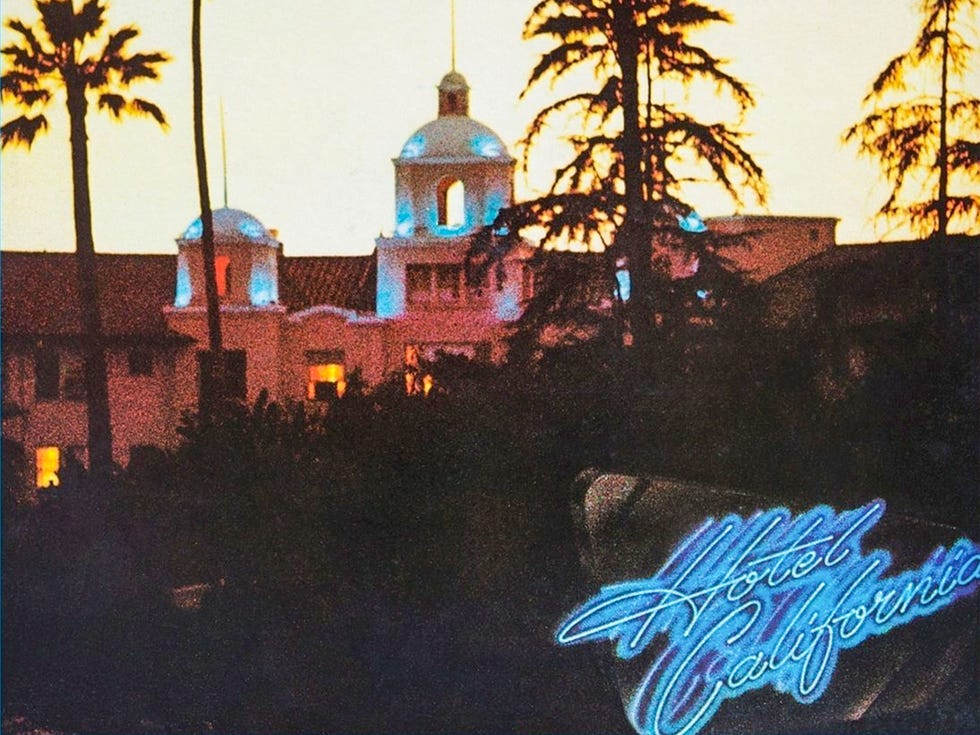When Hotel California was released in 1976, it marked a pivotal moment in the history of rock music. The Eagles’ fourth studio album, which featured the iconic title track “Hotel California,” became one of the most celebrated and enduring works of the genre. Its release not only solidified the band’s place in music history but also introduced a new level of sophistication and complexity to rock compositions. The song itself, with its intricate guitar work, layered harmonies, and enigmatic lyrics, has captivated listeners for decades. As fans continue to explore its meaning and impact, the story behind the release of Hotel California remains a fascinating chapter in the annals of classic rock.
The Origins of the Song
The creation of “Hotel California” began as a collaboration between Don Henley, Glenn Frey, and Randy Meisner, who were members of the Eagles at the time. The idea for the song reportedly came from a conversation between Frey and Henley about the excesses of the rock and roll lifestyle. They were inspired by the hedonistic culture of Los Angeles, where the band had been based. The lyrics, which tell the story of a mysterious hotel that seems to offer endless pleasure but ultimately traps its guests, were intentionally vague, allowing listeners to interpret the song in their own way.
The Recording Process

The recording of “Hotel California” was a meticulous process that took several months to complete. The Eagles worked closely with producer Bill Szymczyk, who helped them achieve the rich, layered sound that defined the track. The song’s famous guitar solo, played by Joe Walsh, was recorded over a period of weeks, with each note carefully crafted to fit the song’s mood. The use of multiple guitar parts, including the distinctive rhythm and lead lines, contributed to the song’s unique texture. The production team also experimented with different microphone placements and recording techniques to capture the desired atmosphere.
The Impact on Music and Culture
Upon its release, “Hotel California” quickly climbed the charts and became a massive commercial success. It reached number one on the Billboard Hot 100 and remained there for six consecutive weeks. The album of the same name went on to sell millions of copies worldwide, earning the Eagles multiple Grammy Awards and cementing their status as one of the most successful rock bands of the 1970s. Beyond its chart performance, the song’s influence extended into popular culture, inspiring countless covers, parodies, and references in film, television, and other media.
The Legacy of the Song

Over the years, “Hotel California” has become more than just a hit song; it is a cultural touchstone that continues to resonate with audiences. Its themes of excess, illusion, and the search for meaning have been interpreted in various ways, making it a subject of ongoing discussion among music critics and fans alike. The song’s enduring popularity has led to numerous live performances, including the Eagles’ highly anticipated reunion tours, where the track remains a fan favorite.
Why the Song Endures
One of the reasons “Hotel California” has stood the test of time is its universal appeal. The song’s blend of rock, folk, and soft rock elements creates a sound that is both accessible and sophisticated. Its storytelling approach, combined with its musical complexity, allows it to be appreciated on multiple levels. Whether listened to for its lyrical depth, its instrumental excellence, or its cultural significance, “Hotel California” continues to captivate new generations of listeners.
The Cultural Significance
The release of “Hotel California” coincided with a period of significant change in the music industry. The 1970s saw the rise of progressive rock, glam rock, and punk, but the Eagles’ style offered a more polished and refined alternative. The song’s success demonstrated that rock music could be both commercially viable and artistically ambitious. Additionally, the album’s success helped to establish the Eagles as a major force in the industry, paving the way for future rock acts to explore similar creative directions.
Conclusion
The release of “Hotel California” in 1976 was a defining moment in the career of the Eagles and in the broader landscape of rock music. Its innovative production, compelling lyrics, and lasting impact have ensured its place as a classic rock masterpiece. As the song continues to be celebrated and studied, it serves as a reminder of the power of music to transcend time and connect with audiences across generations. Whether heard for the first time or revisited after decades, “Hotel California” remains a testament to the enduring legacy of one of rock’s greatest songs.



